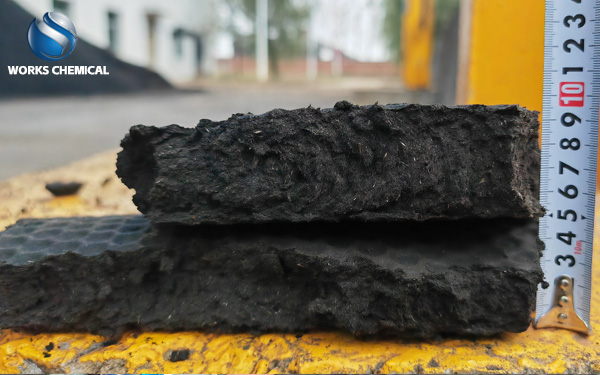
The high water content of municipal sludge is a common problem, and it is very important to choose the right agent to reduce the water content of sludge. Here are some suggestions to help you choose the right agent:

First, understanding the properties of sludge
First of all, it is necessary to understand the specific properties of the sludge, including the source of the sludge, composition, moisture content, viscosity, particle size, etc. These properties will directly affect the selection and use of the drug effect.
2. Principles of drug selection
High efficiency: The selected agent should be able to effectively reduce the moisture content of the sludge and improve the dehydration efficiency.
Economy: Under the premise of ensuring the effect, try to choose a low cost agent to reduce the treatment cost.
Safety: The agent should be non-toxic, harmless, and have no impact on the environment and personnel safety.
Corrosiveness: try to avoid choosing strong acid and alkaline agents to reduce the corrosion of the equipment.
Three, commonly used drugs and characteristics
Acrylamide (PAM)
Features: PAM is a water-soluble polymer with excellent flocculation and condensation properties.
Function: React with suspended particles in sludge through hydrogen bonding to form a large flocculent, which is easy to settle and separate.
Note: PAM price is relatively high, but the effect is significant, suitable for occasions with high requirements for dehydration efficiency.
Polyaluminum chloride (PAC)
Features: PAC is an inorganic polymer with a wide range of coagulant effects.
Function: Through adsorption and condensation, the suspended particles in the sludge are gathered together to form a larger flocculent.
Note: The price of PAC is relatively low, but the amount of use is large, and the dosage should be adjusted according to the nature of the sludge.
Polyferric sulfate (PFS)
Features: PFS is an efficient and low-cost sludge dehydrating agent.
Action: Similar to PAC, the sludge moisture content is reduced through adsorption and condensation.
Precautions: PFS may cause certain corrosion to the device, so pay attention to the maintenance of the device during use.
Compound sludge conditioner
Features: Composite sludge conditioner is developed on the basis of a single flocculant and coagulant aid, through a variety of organic and inorganic flocculant and coagulant aid compound action to make up for the deficiency of a single flocculant.
Function: Usually has higher dehydration efficiency and lower cost.
Note: The preparation process of composite sludge conditioner is relatively complex, and the synergistic effect between the components needs to be ensured.
IV. Suggestions for drug selection
Conduct tests: Before selecting agents, it is recommended to conduct multiple sets of comparison tests to evaluate the dehydration effect and economy of different agents.
Consider cost: In cost accounting, in addition to pharmaceutical costs, should also consider the cost of electricity, manpower, equipment corrosion, transportation, sludge disposal and other costs.
Attention to environmental protection: priority is given to choosing safe and environmental protection agents to avoid bringing additional load to water bodies and sludge.
Professional consultation: If necessary, you can consult a professional sludge treatment agency or experts for more specific advice and guidance.
In summary, the selection of agents with high water content of municipal sludge should consider factors such as sludge properties, agent characteristics, economy, safety and environmental protection. The dewatering efficiency and quality of sludge can be significantly improved by reasonable selection and use of chemical agents.